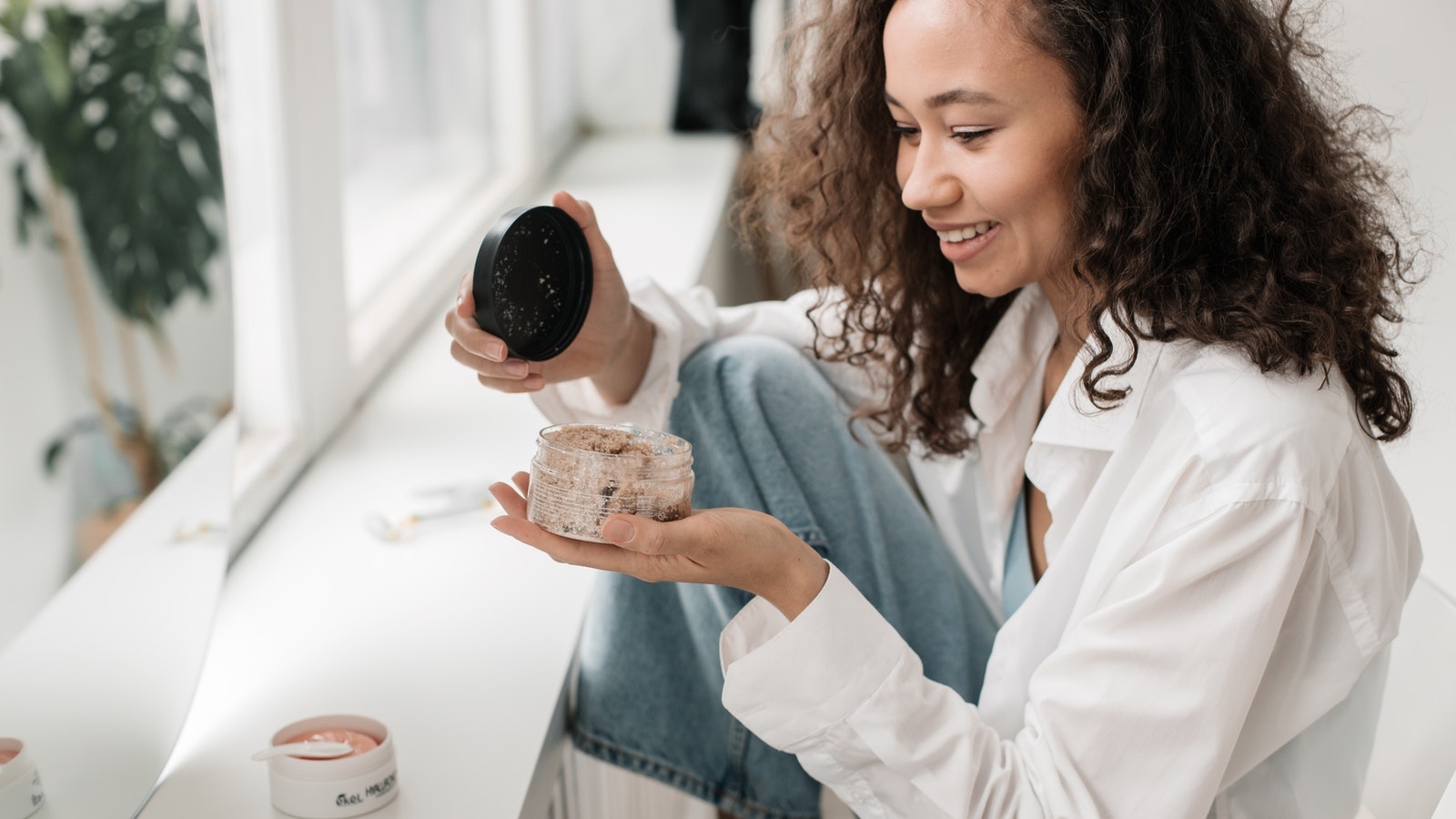Common Natural Beauty Mistakes You May Be Making
Natural beauty seems like a simple topic to tackle; less is more, avoid the obvious chemicals, add a blend of essential oils for natural fragrance and gentle health benefits. But the nuances are often more complicated than your go-to drugstore products, so we’ve brought in our resident skincare expert to help us understand the mistakes we’re making.
You may know Nadine Brown as our wonderful Customer Service Superstar, but she initially trained as a holistic cosmetic dermal therapist and worked in the industry for more than a decade. Her approach to skincare is no-nonsense, free from harsh chemicals and product pitches, so it made sense to ask her about some of the common mistakes people make in their natural skincare routines. Here’s what she had to say:
Chemical Exfoliation & Over-Exfoliation
“One of the biggest things I think is exfoliation, and especially over-exfoliation. I’ve got to talk about the skin cells, so I can explain why I’m so passionate about this. So you have baby cells, and they grow up into teenage cells, and they then grow up into adult cells, and your adult is like the top layer of your skin. When you’re exfoliating that top layer excessively, you’re pretty much asking the teenage cells to step up before they’re ready to really take responsibility and control. And we all know what happens when we do this in real life… They can be lazy at times, they may take shortcuts, they aren’t ready to do the best job of protecting… They’re just not adult cells that can protect the skin.”
“So there’s definitely an over-exfoliation epidemic going on. If you have healthy skin it naturally knows how to decimate itself; exfoliation should only be a tool in your toolbelt that you use to help at the end of a cell lifecycle, say every 28 days. And it should only ever be a physical gentle exfoliant, never anything like your chemical glycolics, and they’re in everything now.”
“The best technique is always individualised, based on your skin’s needs. But the idea of scraping it off and starting again... sure it’s going to feel nice and smooth for a moment but at the end of the day, you’re throwing these cells into the spotlight before they’re ready to be there. The way you’ve got to look at it is, why is your skin bumpy or feeling this way? Usually, it’s a signal for something going wrong on a cellular level. Skin is dry for a reason. So it could be dehydration, the products you’re using, or even hormonal.”
“The best is something that is physical and gentle or an enzyme exfoliant. An enzyme is the safest, because it works almost like a PacMan technique. Enzymes go around and eat all of the dead skin cells rather than eating the healthy ones. If you’re abrasing, you can go too hard - even with a gentle cleanser - and you’re going to take off the baby ones instead of the dead dry ones, so an enzyme can be used more frequently. It does it’s job, what it needs to, and no more than that., so it can’t actually attack the healthy living cells.”
Stripping Natural Oils With Emulsifiers
“Other things that are in other products are emulsifiers and these ones aren’t really highlighted much. These are what binds oil and water together, but in between all of your skin layers is kind of like a house, you have your mortar in between your bricks… So this layer is made up of oil and water too. When you have emulsifiers that bind water and oil together, you can imagine when you’re cleaning your face, it’s stripping the natural oils and you end up with cracks and crevices between your healthy skin cells, which causes all of these other irritants, other chemicals, and other conditions like contact dermatitis."
“That’s a big one that a lot of people aren’t aware of, and it’s hard because it’s like anything, they have lots of different names. It’s always best if you’re unsure of an ingredient, to google it.
Hidden Preservatives Damaging The Microbiome
“Then there’s preservatives. These are in lots of products, especially ones that have a lid and they’re likely a cream that you dip your finger in… These need preservatives to kill off the bacteria. But the issue with that is that your natural skin microbiome has bacteria in it. It’s got oil, water, and bacteria that keep a protective veil on your skin, like a protective coating, and if you were to then use a product that has preservatives in it, you’re effectively killing the good guys and then again you can create issues with your skin like psoriasis and dermatitis because you’re stripping the healthy bacteria from the microbiome. There’s one called methylisothiazolinone (MIT), that you have to look out for. It is in makeup wipes, which is a common culprit for damaging the skin.”
Smoothing Oils & Silicones
“Mineral oils and silicones are another hidden nasty, found in a lot of makeup products like primers. What they do is they fill in all of the skin’s natural gaps and pores and give you this clean, smooth surface right? But what the silicone actually does, is create a clingfilm effect on the face, so while nothing can get in, the skin can’t actually breathe and as a result, it slows down the production of cells and it stops that cell-to-cell communication happening, which is needed for healthy skin.”
Natural Perfumes & Fragrances
“One point where the natural beauty community tends to differ in opinion, whether or not they’re healthy for you, is essential oils. But they should only be put where they can’t be seen in my opinion, because they have the ability to be photosynthesized. This means they can cause pigmentation in the skin, they can also be an irritant, and any time your skin becomes inflamed and then you go out in the sun, this can trigger the melanocytes cells to overproduce melanin, which is responsible for the pigmentation in your skin. So essential oils, or even any fragrance in generals, is something that needs to be more carefully considered in skincare.”
“The gist of it is if your product smells amazing, it’s probably because they’re trying to mask chemical components in there, so they overpower with fragrance so it smells wonderful - but really, natural ingredients shouldn’t have a smell at all. Anything that’s purely natural and beneficial for your skin, doesn’t need to have a smell, because if it smells like vitamin C, it’s probably often synthetic vitamin C anyway.”
Do you have a passion for nutrition & natural healing?. Learn more about the Food Matters Nutrition Certification Program here.


